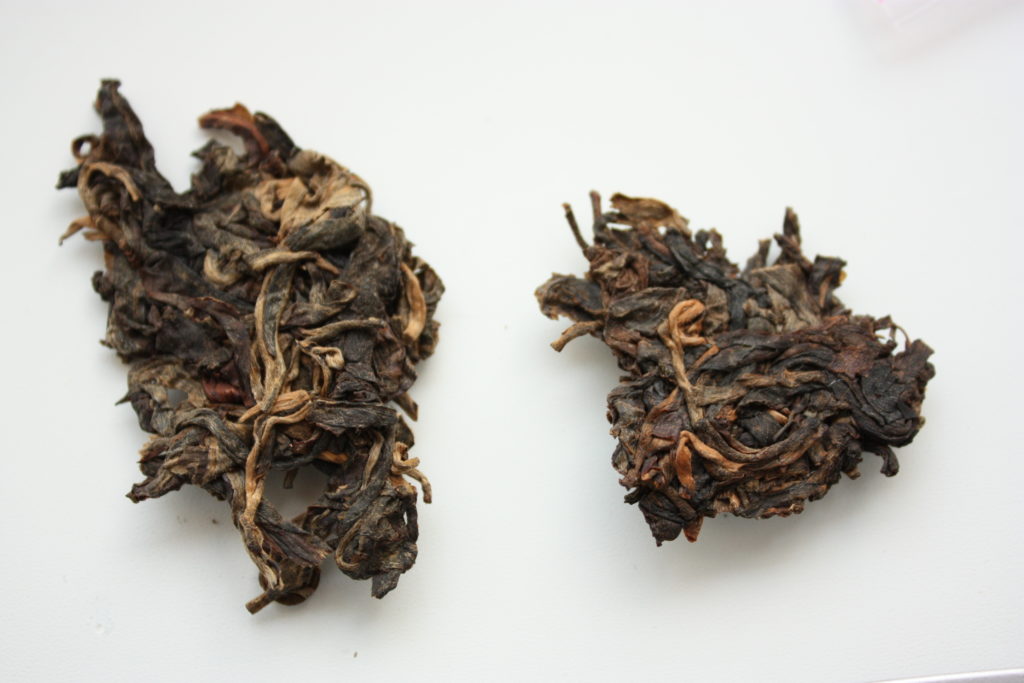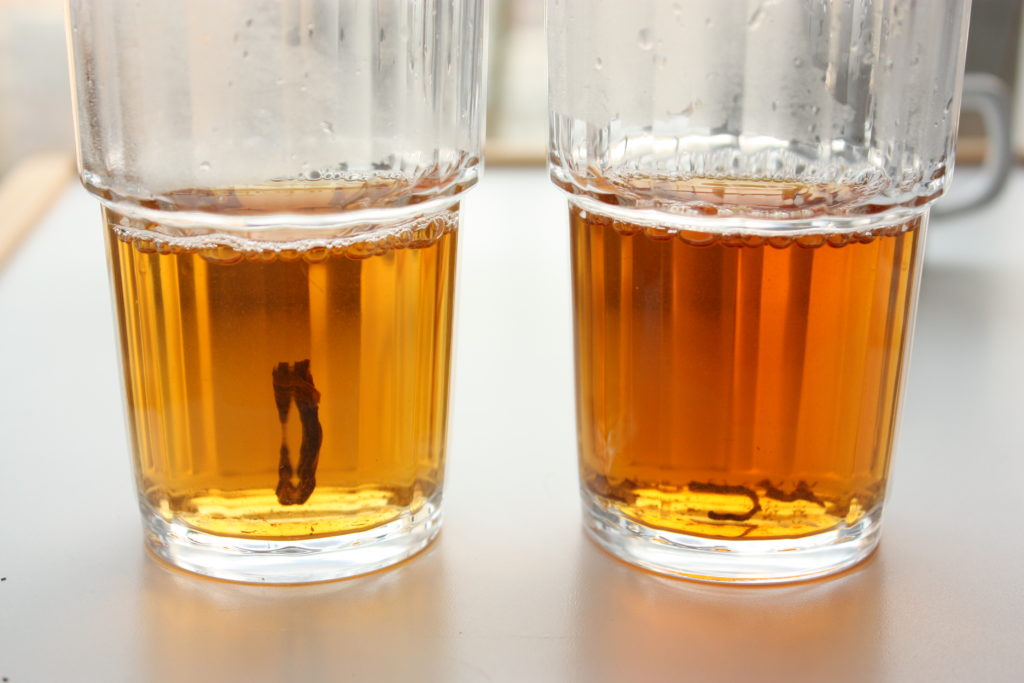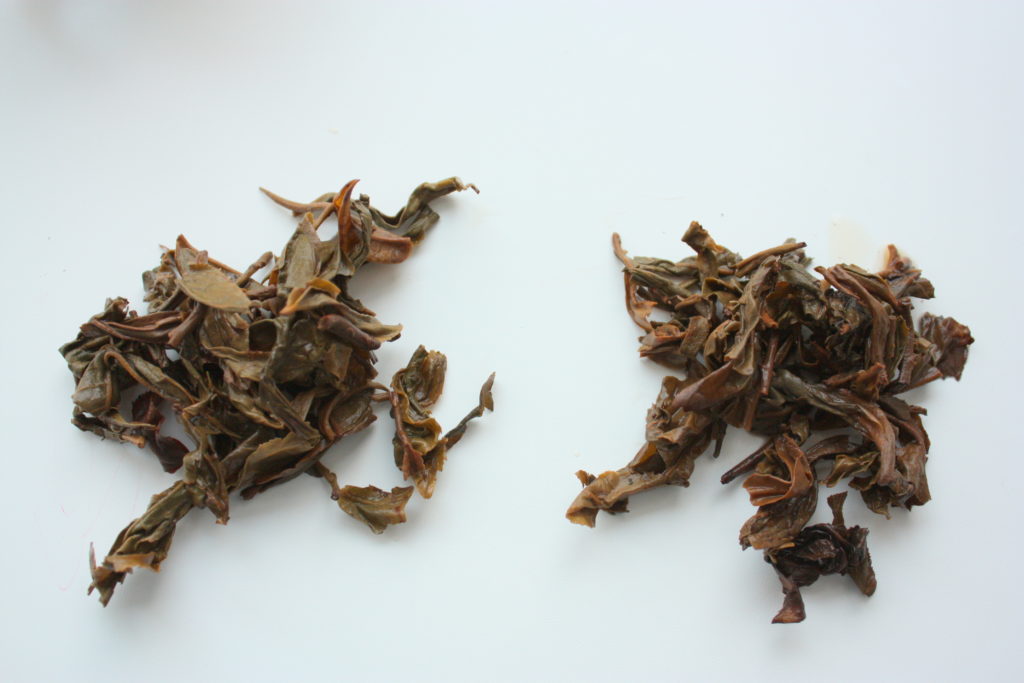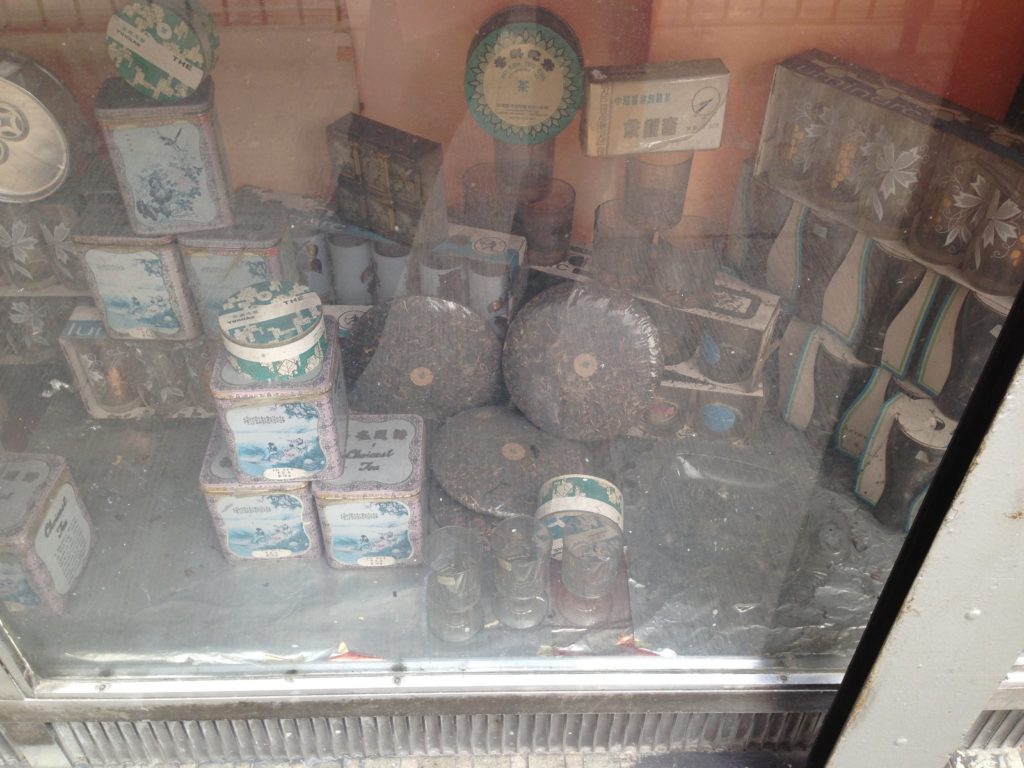Why do we store puerh? Why do you store puerh?
Let’s say you consume 10g of puerh a day. That’s a pretty generous amount for most people, since you’re likely to drink other kinds of teas, and 10g for personal consumption, assuming you don’t drink with others on a very regular basis, is quite a bit. So in a year, that’s 3.65kg, or just around 10 cakes of 357g each. In other words, to satisfy your annual puerh consumption of 10g a day, you need 10 cakes. If you are sitting on 100 cakes, and quite a few of us are, you are sitting on a ten year supply of tea. Clearly, that’s not tea meant for immediate drinking.
So many of us, if not almost all of us (shu drinkers who buy one or two cakes at a time and only re-up their supply don’t count) are buying puerh to age. There are of course a few possible reasons why that’s the case. The first, and is probably the most often cited one, is because we want to drink aged teas, but don’t want to pay aged tea prices. If we look at what the aged tea price involves, I think we can break it down to the following components
Aged tea price = original tea cost + time value of money + storage costs + scarcity premium + additional value of aged taste
So, naturally, a cake of tea that cost $100 in year 1 should, theoretically anyway, cost a little more in year 2, because the opportunity cost of forgoing the investment income from the $100 plus the storage cost should be worth something. In this current environment, the opportunity cost is pretty negligible, unless you happen to be a financial wizard. Storage cost, depending on your location, is always non-zero, but is also relatively negligible. So in year 2, your tea might be worth $102, and in year 3, $104, so on so forth. Of course, you may feel that a fairer measure would be inflation-indexed, so maybe you should benchmark the opportunity cost to inflation, rather than the returns on treasury notes. That might bump it up another percent or two, but still, not a whole lot.
The other things, however, are the kickers. The first, scarcity premium, is a real problem. For example, for teas that are well known but which were relatively limited in production, the price of the cake can be driven almost entirely by this premium. The Yuanyexiang that was made famous by a bunch of magazine and other writers online took off that way, and the prices are now something like 1000 RMB, for a tea that really isn’t all that great, even now, ten years later. When I bought them, it was almost 200 RMB. That was six years ago, and I thought it was pretty expensive. Has the tea improved so much that they are now worth 5x as much? No. It’s all about scarcity, and the fact that there are more people chasing the tea than there are teas available, so the prices keep going up and up, even though in recent years folks have started chasing other things and its price rise has stagnated.
We see similar movements in teas from regions that are considered good and low in production volume. Lao Banzhang old tree teas, for example, are in that category. There isn’t much of it to begin with, and so now anything that has a whiff of Lao Banzhang in it is priced astronomically, even when new. A lot of times they’re not even very good, or simply fake (using teas from neighbouring villages, etc). While the quality is there for the real stuff, a lot of it is not of that quality and is instead something inferior, but the scarcity premium is applied anyway.
Then there is the aged taste term, which I think is what we are all actually looking for when we store our own teas. We want our teas to age, and to age well, so that twenty years from now we have nice aged teas to drink. Many of us, especially those of us from or live in Asia, got started in this hobby because we tried incredible aged teas, and want to replicate that experience. The problem with this is twofold. The first is, in a lot of cases those aged taste may not be what you’ll end up getting in the end. Storing crap is not going to land you with a well aged tea, because crap only age into aged crap, not aged nectar. Picking out teas that will age well is not easy, and there are conflicting theories as to what will make a good aged tea. That’s a difficulty.
The second problem is that there are lots of risks with aging, and it has real costs disassociated with the time value of money and the storage costs. For example, you run the risk of ruin – mold, fire, flood, mice, children, among many other possible bad things that can happen to your tea. Some are recoverable, others not. A kid drooling on your cake is probably ok; the same kid decorating your cake with permanent marker, not ok. I know of at least a handful of friends who stored teas and have met unmitigated disasters during the process. It’s a real threat, not imaginary.
There are two other problems related to this. The first is one that I think will start manifesting itself in the coming years – some areas of the world just aren’t very good for storing tea. Kunming, for example, falls into this category, and I think some places, like Los Angeles, will as well. Hster’s samples from the Bay Area are not promising either. However, these things don’t show their colours until you’ve tried storing it there, for years, before they become apparent. Also, exact locations in the house, where the house is situated, and other micro-climate issues may affect the tea, positively or negatively.
The other problem is more fundamental – that the aged taste may not be to your taste. This, I think, is a real risk among many who come into this hobby not through the old tea way, but who start out drinking young teas and then only occasionally have access to one or two samples of older teas. Such drinkers might have a great appreciation of what younger puerh offers, and may very well be a very sophisticated drinker of young puerh. However, if they buy lots of tea, by definition not all of it will be consumed, and when aged, they might not be to the taste at all.
I’ve encountered folks like this in China. Some can tell me, with great precision, which village a tea is from. However, for the most part, they drink younger (10 years or less) teas on a regular basis, and have little experience with older teas, regardless of provenance or type. So they can get confused when presented with something older, aged in a more humid climate (not traditionally stored) or not of single village origin. For drinkers like this, I think the fun is in trying to figure out where things are from, in learning the different characteristics of the villages, etc, and not so much in the aging process. I’m not sure if it’s such a good idea for them to buy a lot of tea to age, because, frankly, they might not end up liking it.
To many, this is of course anathema to what puerh is about – puerh needs to be aged, and I generally agree with that. We do also need to recognize that the hobby is changing a bit, first from traditional storage to the proliferation of home natural storage, and now, to a different way of enjoying the hobby – trying to figure out origins, terroir, etc, things that are generally absent from the older teas because they were almost all big factory blends, unless you go all the way back to pre-1949 teas. I do think there’s a need to recognize and perhaps even separate the different sides of the hobby. When we say a tea is good, do we mean good now? Good later? Good to age? Under what conditions? For whom? I’m pretty sure a bitter, smoky tea stored for decades in, say, Alberta, is probably still going to be bitter, smoky twenty years hence. How many twenty years does one have in a lifetime?










It's good to have things remind you of your priors. I am going to write another post about these waters…